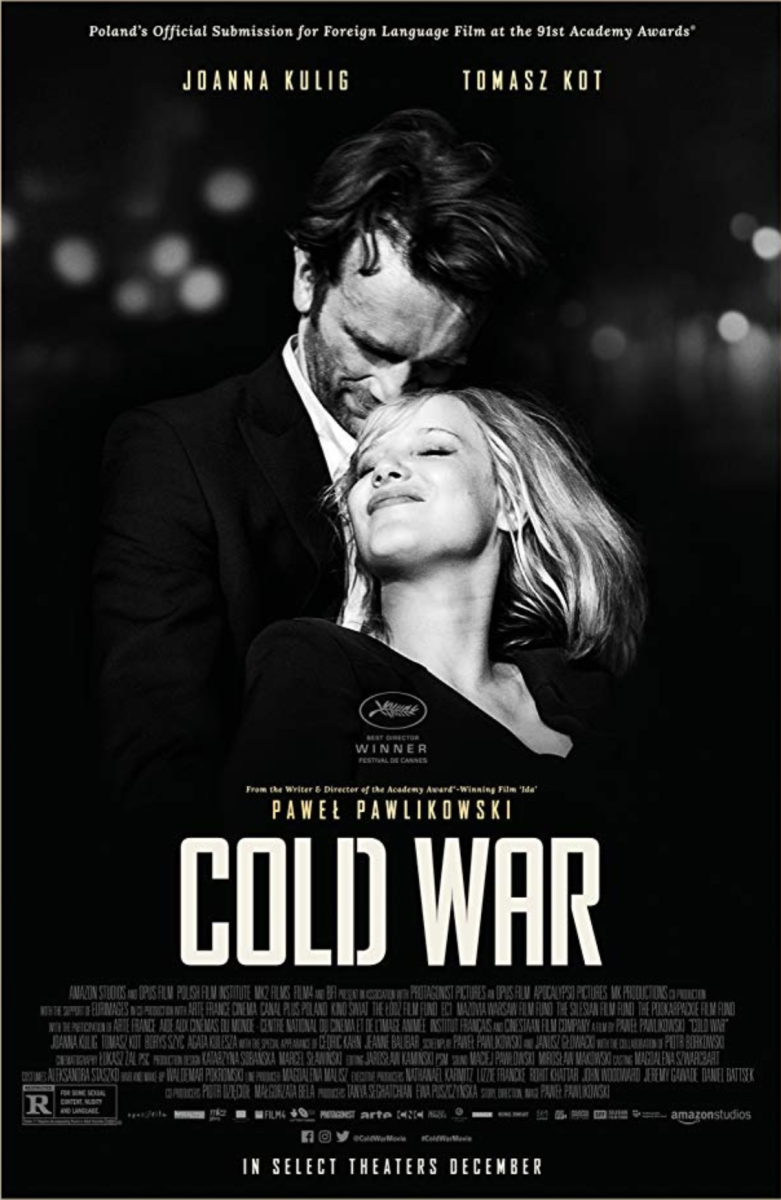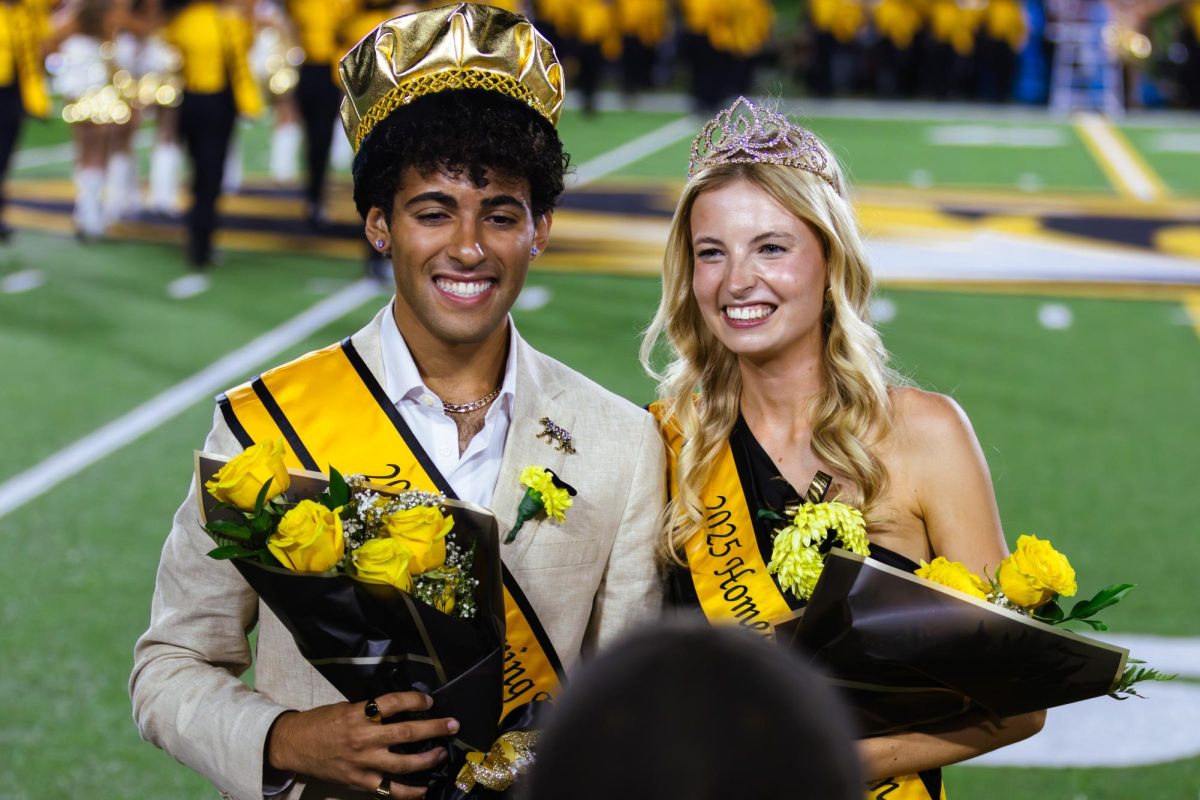“Time doesn’t matter when you’re in love,” a poet explains to singer Zula (Joanna Kulig) late in Pawel Pawlikowski’s “Cold War,” which opened on Friday at Ragtag Cinema. The movie surrounding her knows it well. “Cold War” is a love story that spans over 15 years and multiple countries in 89 brief minutes. Time is just one necessity the film’s luckless, self-destructive musicians could use a little more of.
For a movie where even the brief moments of violence are conveyed with a suave, otherworldly cool, and where every frame is carefully composed, “Cold War” opens somewhat harshly. We’re immediately introduced to a band of peasants in the ruins of post-war Poland playing dissonant, grating bagpipe music. They’re quickly recruited and auditioned for a musical performance, whose director (Tomasz Kot) craves authenticity above beauty.
One singer, Zula, catches his eye and wins him over with her voice. Her past is complicated and arguably underdeveloped, but he almost instantly recognizes and falls in love with the star within her. From there, the film becomes half-musical, half-travelogue as our characters fall in and out of love and back again throughout Europe.
The classic Hollywood 4:3 aspect ratio and the gorgeous black-and-white photography could easily cause the film to be mistaken for one from the 1950s instead of a mere period piece emulating it. Indeed, the film’s visuals resemble the work of the masters of that era like Max Ophüls. Its Oscar nomination for Best Cinematography is well earned, as the film gets more vivid textures and depth out of black-and-white than most films do with color. The contrast between the dark, shadowy nightclubs of Paris and the abandoned ruins of Poland is as stunning as it is somewhat unsettling.
The technical virtuosity is the film’s greatest triumph, and yet simultaneously keeps it from reaching even greater heights. Every shot, camera movement and trick of the light is so carefully coordinated that the love story within the film starts to feel hollow and detached. The chilly black-and-white textures emphasize how bleak the movie is, and not always in a good way.
At the same time, the beautiful choreography and music adds a feeling of joy where there otherwise is none. “Cold War” is one of the bleakest films in recent years, save maybe “First Reformed,” but it’s hard not to feel enraptured by Kulig’s drunken dancing to “Rock Around the Clock,” or by her voice accompanying a gorgeous piano melody by Kot. It’s just one of many 2018 films to serve as a reminder of the healing power music can have in unimaginably dark times.
In the case of “Cold War,” music isn’t enough to save its protagonists from themselves, however. The musical it resembles most is the Coen Brothers’ similarly despondent, downbeat “Inside Llewyn Davis.” It knows its characters are doomed and that they’re arguably not even very likable. It only asks for a little sympathy for such an impossible romance, and it’s hard to not to get swept up in such a grand tragedy on such a small scale.
_Edited by Janae McKenzie | [email protected]_








